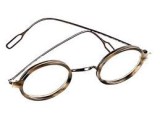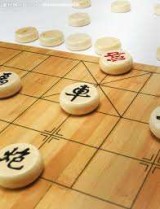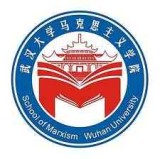 It’s going to be a hot one here in Wuhan. I’m back at Figaro’s because Starbucks was just too far to walk this morning. Also, I’ve got to be back on campus at noon–one of our Chinese hosts is going to bring me to buy new glasses at lunch time. Mine are several years old, and the price for an exam and new pair of glasses here is about $50.00. I’m in.
It’s going to be a hot one here in Wuhan. I’m back at Figaro’s because Starbucks was just too far to walk this morning. Also, I’ve got to be back on campus at noon–one of our Chinese hosts is going to bring me to buy new glasses at lunch time. Mine are several years old, and the price for an exam and new pair of glasses here is about $50.00. I’m in.
I had quite a weekend. Thanks for all of the sweet comments about that last post. Yes, it was a rough couple of days, but things are definitely better now. No GI problems for a week. Also, I’ve had some incredible (and strange) experiences. My mom mentioned in a comment about trying to talk to younger people in English, and I had excellent success with that this morning. It is becoming more obvious to me that some of the young people really want to practice their English with me, but they are shy of asking. This morning, I said my usual hello to the young guy who cooks the soy milk each morning at the dining hall where I eat. I wanted to buy something in a local shop, but I knew that if I said it to the shop owner, he wouldn’t know what it was. The key I’ve found is to find someone to write the words out in Chinese characters. I asked this young guy at the dining hall this morning about a board game I saw some men playing last night.  It took him a few tries, but he figured out (through my amazing hand gestures and terrible pronunciation) what I was talking about. He wrote it down for me, I walked over to a local shop, and lo and behold, the shop keeper had exactly what I was looking for. I felt like I’d won something big.
It took him a few tries, but he figured out (through my amazing hand gestures and terrible pronunciation) what I was talking about. He wrote it down for me, I walked over to a local shop, and lo and behold, the shop keeper had exactly what I was looking for. I felt like I’d won something big.
This weekend. Oh, this weekend. On Friday, I got an email from a professor who, last spring, had met the director of international students and scholars from my school back in Illinois. The director had asked the professor to show me a good time while I was in Wuhan. Through a series of miscommunications (which happens often when traveling overseas), I failed to realize I was supposed to contact this professor when I arrived in Wuhan. So, on Friday, I got this email from him asking me to join him the next day at a symposium on Chinese Traditional Cultural and Ideological Moral Construction, sponsored by the Wuhan University School of Marxism. An hour after I received the email, he knocked on my hotel room door. He introduced himself and two of his colleagues, and then asked if I could come the next day. Then, he asked if I could give a speech. OMG. He was quite insistent, so I felt like I couldn’t exactly say no. I asked him to send me an outline of what he’d like me to cover in the speech, and could we please keep it down to five minutes.
 Yeow. I’m not a Marxist scholar. In fact, I know a little about Marxism, but not a lot. I decided to talk about what I do know, which includes my impressions of China, the similarities and differences I see between the two countries, the role of seeing someone else as “Other” in order to justify cruelty, and the importance of seeing how connected the US and China are. My speech ended up being thirty minutes because my professor friend, Xiang Jiuyu was working very hard to translate each line. It went quite well, and I had an excellent question put to me during the Q&A after all of the speeches were done. A young scholar asked this: “How do we reconcile cultural diversity and cultural integration?” She had mentioned to me during the lunch break that she was very interested in multiculturalism. In China, there is not a lot of multiculturalism–there seem to be more similarities than differences, and through their focus on nationalism, the Chinese do a good job of smoothing out what few differences exist.
Yeow. I’m not a Marxist scholar. In fact, I know a little about Marxism, but not a lot. I decided to talk about what I do know, which includes my impressions of China, the similarities and differences I see between the two countries, the role of seeing someone else as “Other” in order to justify cruelty, and the importance of seeing how connected the US and China are. My speech ended up being thirty minutes because my professor friend, Xiang Jiuyu was working very hard to translate each line. It went quite well, and I had an excellent question put to me during the Q&A after all of the speeches were done. A young scholar asked this: “How do we reconcile cultural diversity and cultural integration?” She had mentioned to me during the lunch break that she was very interested in multiculturalism. In China, there is not a lot of multiculturalism–there seem to be more similarities than differences, and through their focus on nationalism, the Chinese do a good job of smoothing out what few differences exist.
In my answer to her question, I shared some of my experiences working with diverse student populations, which I’ve been thinking about a lot lately. I’m reading Teaching Critical Thinking: Practical Wisdom, a series of essays by bell hooks, who is a feminist scholar, cultural critic, and talented writer. Her work is influenced by Paolo Friere, who wrote Pedagogy of the Oppressed. In answering this young Chinese scholar, I drew on hooks’ writings, as well as my own experience with students. I have curiosity about my students, conversations with them to try to find out more about who they are, but I know that we may only have a little common ground, and I’m okay with the vulnerability that arises from our differences.  I gave the example of high school girls in the US, the stereotype of girls who wear matching clothes and hairstyles and do what they can to look and talk exactly alike. This is about vulnerability, or rather, the attempt to not feel vulnerable by being part of a group where everyone looks and thinks the same. I challenged this young scholar to accept the vulnerability of not ever truly knowing our students, possibly not ever finding much common ground with them, but still offering what we can and remaining curious about who they are.
I gave the example of high school girls in the US, the stereotype of girls who wear matching clothes and hairstyles and do what they can to look and talk exactly alike. This is about vulnerability, or rather, the attempt to not feel vulnerable by being part of a group where everyone looks and thinks the same. I challenged this young scholar to accept the vulnerability of not ever truly knowing our students, possibly not ever finding much common ground with them, but still offering what we can and remaining curious about who they are.
Later, another professor asked me this: “How do you teach patriotism in the US?” Wow. I had to back up a step and first explain my thoughts on teaching patriotism. I talked about how this is in direct conflict with critical thinking, and I tried to explain what critical thinking was. It was clear from his follow-up questions that he had a very different approach to teaching, to ideology, and to patriotism than I did. Which is okay. Just like in my answer during the Q&A, I tried to model what I said, that I can be okay with the differences. This second professor was clearly interested in talking to me–he wasn’t just trying to convince me of his way of thinking and teaching. I was curious about him and he was curious about me, and we had a conversation. This, despite the incredible abyss between his experience and mine, his world and mine. I couldn’t help thinking throughout the day how amazing it was that I was here, welcomed by these scholars.  Decades ago, I wouldn’t have been able to go home after talking with these people because I would have been branded a communist. I kept wondering about the fact that these very scholars would have been the ones to suffer most if they had been practicing intellectuals during the Cultural Revolution, when their own beloved Mao closed the schools and allowed the Red Army teenage soldiers to terrorize scholars throughout China.
Decades ago, I wouldn’t have been able to go home after talking with these people because I would have been branded a communist. I kept wondering about the fact that these very scholars would have been the ones to suffer most if they had been practicing intellectuals during the Cultural Revolution, when their own beloved Mao closed the schools and allowed the Red Army teenage soldiers to terrorize scholars throughout China.
Things are changing in China, and I think people at every level people here sense that this is happening–vendors, students, food service workers, scholars. The economics of their world is shifting so rapidly that I imagine it is hard to keep up from day to day. Change is always hard–the old guard wants to maintain control, while the young people and the forward-thinkers want to dismantle the old ways and bring forth something new. It’s so interesting when I read about Mao and his contemporaries, how they are praised for being revolutionaries, but yet, any current-day revolutions are quickly snubbed out. Revolutions in the past are praiseworthy, but revolutions in the present are punishable. I’m sure this is always the case until a critical mass builds and the old ways pass away, either by peaceful means or by bloodletting. It will be interesting to see how the current changes in China play out and what their transition into the future will look like.
The weekend (and the symposium) went on with many, many more incredible experiences involving food, wine, baijiu, hotel rooms, massage tables, and street food. Check back tomorrow for the juicy details :)

You had a great time. Sound great.
Lania –
I got a great email from Jeff telling all about his weekend adventures, and love hearing about yours; the similarities and differences of what you’re both experiencing are mind-blowing! This symposium and your impact on it sounds astounding! What a fantastic adventure you are having! WOW! I just wish I were there with you guys!
Can’t wait to read the next entry!
Love you!
J
Lania, you are so smart and opened minded. I admire your intellect!
Aw shucks, John. Thanks!
If you have time, would you stop by the garden and pick some cucumbers and tomatoes for yourself? And check on Daniel? :)
Comments are closed.